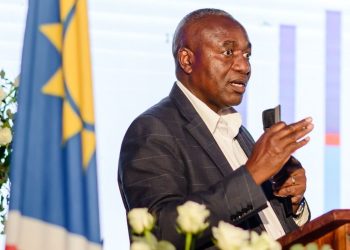
Namibian President Nangolo Mbumba has reached out to King Philippe of Belgium to address restrictions imposed by the G7 countries, which mandate that all gem producers must send their products to Belgium for certification to enforce traceability.
The decision which became effective in March also seeks to root out imported diamonds mined in Russia.
“Recently a decision was made by G7 countries to route all rough and polished diamonds destined for G7 countries via Belgium. This decision poses a serious risk and threat to our economies (Angola, Botswana and Namibia) by increasing costs as well as curtailing the freedom of trade for our countries,” Mbumba said at State House in Windhoek on Tuesday where he met with King Philippe and other high-level Belgium dignitaries.
“In that vein, we have requested for urgent dialogue to find a mutually beneficial solution. Your Majesty, we hope to count on your support and the understanding of the Kingdom of Belgium.”
King Philippe is in Namibia on a five-day state visit. Namibia is one of the world’s leading diamond producing countries, having produced 2.327 million carats of rough diamonds in 2023, which was a 9% increase from 2.137 million carats of diamond produced in 2022.
As of 1 March, the G7 which consists of seven of the world’s advanced economies, including Canada, France, Germany, Italy, Japan, the United Kingdom and the United States, passed a resolution that all rough and polished diamonds entering G7 countries be sent through Antwerp, Belgium, to determine their origin.
This is in an effort to reduce Russia’s revenues from its diamond trade, which finances its war against Ukraine.
Botswana President Mokgweetsi Masisi has also raised concerns saying the traceability mechanism poses an unfair burden on African diamond producers that also results in additional costs and delays.







